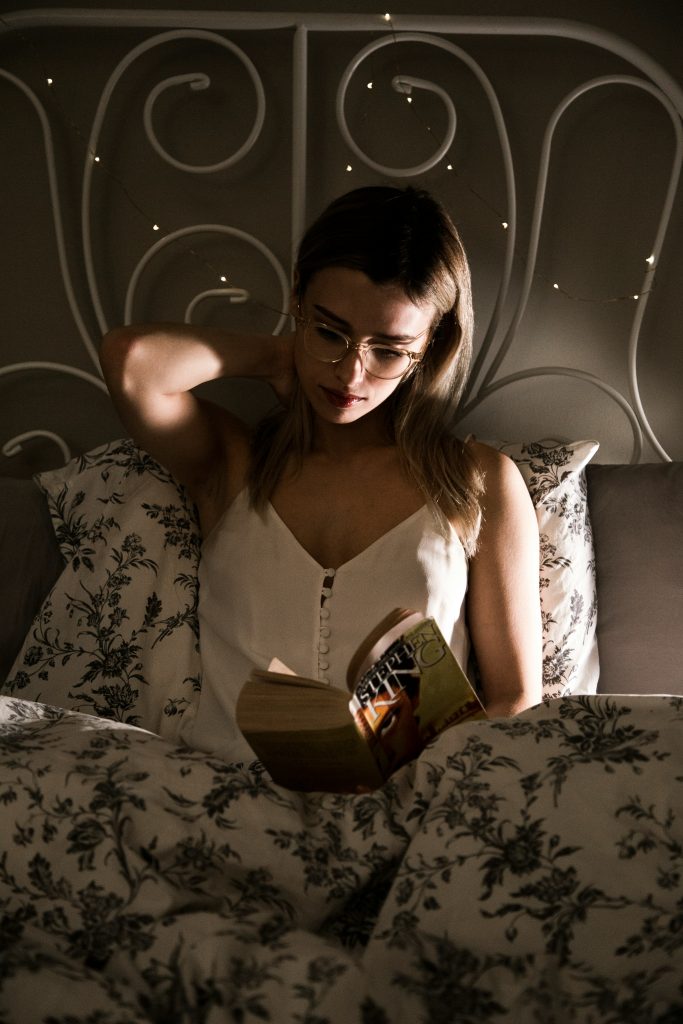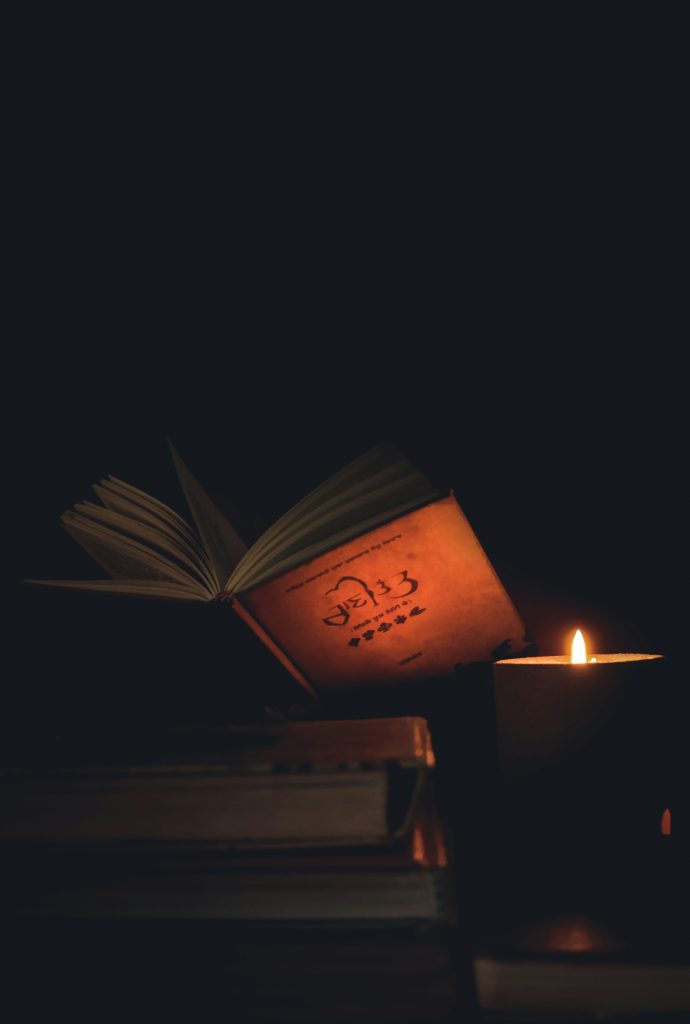Contents
- 1 Why Reading Calms the Brain
- 2 So, Does Reading Help You Sleep?
- 3 When Reading Helps—and When It Doesn’t
- 4 How to Build a Reading Routine That Helps You Fall Asleep
- 5 Why Do I Fall Asleep When I Start Reading?
- 6 What the Research Says
- 7 My Go-To Books That Knock Me Out Cold
- 8 Final Thoughts: Can Reading Help You Fall Asleep? Absolutely.
If you’ve ever wondered can reading help you fall asleep, the answer is a big yes—and science backs it up.
I’ve always been the kind of person whose brain lights up at night. I’d lay in bed, exhausted, but my thoughts would go into overdrive: grocery lists, to-dos, that awkward thing I said in 2016—it all came rushing in. Sound familiar? That’s when I started experimenting with reading before bed. And let me tell you: it changed everything.
Why Reading Calms the Brain
We live in a hyper-connected world where most of us end the day scrolling through Instagram, checking emails, or watching Netflix. But screens—especially close to bedtime—are doing us no favors. According to a 2017 study in the Journal of Clinical Sleep Medicine, exposure to blue light before bed suppresses melatonin production, making it harder to fall asleep and stay asleep.Reading a printed book (or even an e-ink device like a Kindle without backlighting) can be the antidote.
A study by the University of Sussex found that reading for just 6 minutes can reduce stress levels by up to 68%—more than listening to music, having a cup of tea, or going for a walk. That kind of stress reduction prepares your mind and body for a smoother transition into sleep.

So, Does Reading Help You Sleep?
Yes—when done right. Reading before bed is a mental cue that tells your brain, “Hey, it’s time to wind down.” It shifts your focus away from the chaos of the day and into the calm of a fictional world, or even a soothing nonfiction one.
I’ve heard people say, “Why do I fall asleep when I start reading?”—and it’s not because the book is boring (although, guilty of that once or twice). It’s because your mind is relaxing, your body is still, and you’ve given your brain permission to slow down.
That sleepy feeling you get mid-chapter? It’s your nervous system shifting into parasympathetic mode—your body’s natural rest-and-digest state.
When Reading Helps—and When It Doesn’t
Let’s be honest: not all reading is created equal when it comes to bedtime.
✅ Good Bedtime Reads:
- Light fiction
- Memoirs or travel books
- Inspirational nonfiction
- Poetry
❌ Reads That Might Keep You Up:
- Thrillers or horror (I made that mistake with Stephen King…)
- Work-related content
- Intense self-help that gets your gears turning
Also, try to avoid reading on tablets or phones with backlit screens. If that’s your only option, use a blue light filter or night mode to limit disruption to your melatonin levels.
How to Build a Reading Routine That Helps You Fall Asleep
- Set a consistent bedtime
Start winding down at the same time every night to train your internal clock. - Read in bed—but sit up
Sitting propped up can help signal you’re still “winding down” rather than napping mid-day. - Use a dim, warm reading light
Bright white lights can interfere with melatonin. Go for soft, amber hues. - Keep it short and sweet
You don’t need to read for an hour. Even 10–15 minutes of calming reading can work wonders. - Create a wind-down stack
Keep 2–3 gentle books by your bed. If one isn’t working that night, switch it up.
Why Do I Fall Asleep When I Start Reading?
If you’ve ever cracked open a book and found yourself dozing after a few pages, you’re not alone. It’s actually one of the clearest signs that reading is working as a sleep cue.
The reason? Reading engages your brain just enough to quiet racing thoughts without overstimulating it. You’re focusing on something non-demanding, your muscles are relaxed, and your mind eases into a slower rhythm. That’s basically the recipe for sleep.
In fact, Sleep Foundation experts say activities that reduce cognitive arousal (like reading) are key to falling asleep faster and experiencing deeper sleep cycles.

What the Research Says
Let’s talk numbers.
- A 2021 randomized controlled trial published in BMJ Journals found that participants who read before bed were 22% more likely to report improved sleep quality compared to those who didn’t.
- The National Sleep Foundation includes reading as a top bedtime habit to improve sleep hygiene.
- Harvard Medical School notes that screen-free activities like reading promote better rest, particularly in people who struggle with insomnia.
So next time you ask can reading help you fall asleep, remember—it’s more than just anecdotal. Science says yes, and it’s not just about what you’re reading, but how your brain responds to the ritual.
My Go-To Books That Knock Me Out Cold
Here are a few that have worked like a charm for me:
- The Little Book of Hygge – A cozy Danish approach to life and rest
- The Alchemist by Paulo Coelho – Gentle pacing and reflective vibes
- A Short History of Nearly Everything by Bill Bryson – Fascinating but soothing
Sometimes I’ll even reread books I’ve read before, just for the comfort of familiarity.
Final Thoughts: Can Reading Help You Fall Asleep? Absolutely.
If you’ve been battling the bedtime blues, ditch the phone, grab a good book, and let yourself ease into sleep. The question can reading help you fall asleep doesn’t need to stay a mystery.
It’s a simple, effective, and totally free tool to help quiet your mind and signal your body that it’s time to rest. Whether you fall asleep mid-page or finish a chapter and drift off minutes later, you’re building a habit that your future rested self will thank you for.
P.S. Already read your way to dreamland? Drop your favorite sleepy-time book in the comments—we’re always adding to the bedtime stack here at Snooze Valley.

2 thoughts on “Can Reading Help You Fall Asleep? A Simple Trick That Works”